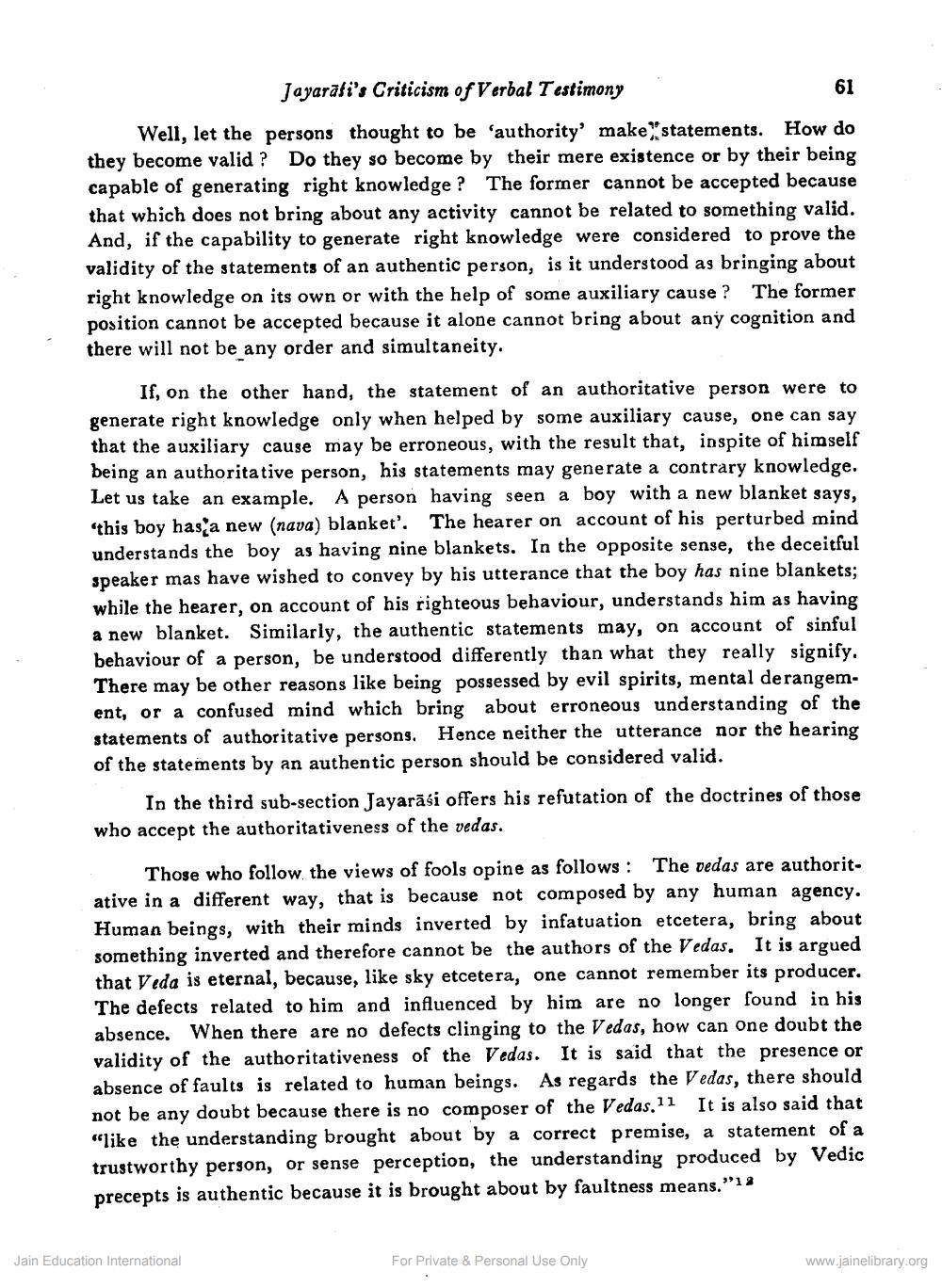Book Title: Jayarasi Criticism of Verbal Testimony Author(s): Jaydev M Shukla Publisher: Z_Aspect_of_Jainology_Part_2_Pundit_Bechardas_Doshi_012016.pdf View full book textPage 5
________________ Jayarāfi's Criticism of Verbal Testimony 61 Well, let the persons thought to be "authority' make statements. How do they become valid ? Do they so become by their mere existence or by their being capable of generating right knowledge ? The former cannot be accepted because that which does not bring about any activity cannot be related to something valid. And, if the capability to generate right knowledge were considered to prove the validity of the statements of an authentic person, is it understood as bringing about right knowledge on its own or with the help of some auxiliary cause? The former position cannot be accepted because it alone cannot bring about any cognition and there will not be any order and simultaneity. If, on the other hand, the statement of an authoritative person were to generate right knowledge only when helped by some auxiliary cause, one can say that the auxiliary cause may be erroneous, with the result that, inspite of himself being an authoritative person, his statements may generate a contrary knowledge. Let us take an example. A person having seen a boy with a new blanket says, 'this boy has a new (nava) blanket'. The hearer on account of his perturbed mind understands the boy as having nine blankets. In the opposite sense, the deceitful speaker mas have wished to convey by his utterance that the boy has nine blankets; while the hearer, on account of his righteous behaviour, understands him as having a new blanket. Similarly, the authentic statements may, on account of sinful behaviour of a person, be understood differently than what they really signify. There may be other reasons like being possessed by evil spirits, mental derangement, or a confused mind which bring about erroneous understanding of the statements of authoritative persons. Hence neither the utterance nor the hearing of the statements by an authentic person should be considered valid. In the third sub-section Jayarāśi offers his refutation of the doctrines of those who accept the authoritativeness of the vedas. Those who follow the views of fools opine as follows: The vedas are authorit. ative in a different way, that is because not composed by any human agency. Human beings, with their minds inverted by infatuation etcetera, bring about something inverted and therefore cannot be the authors of the Vedas. It is argued that Veda is eternal, because, like sky etcetera, one cannot remember its producer. The defects related to him and influenced by him are no longer found in his absence. When there are no defects clinging to the Vedas, how can one doubt the validity of the authoritativeness of the Vedas. It is said that the presence or absence of faults is related to human beings. As regards the Vedas, there should not be any doubt because there is no composer of the Vedas. 11 It is also said that "like the understanding brought about by a correct premise, a statement of a trustworthy person, or sense perception, the understanding produced by Vedic precepts is authentic because it is brought about by faultness means."19 Jain Education International For Private & Personal Use Only www.jainelibrary.orgPage Navigation
1 ... 3 4 5 6 7 8 9 10 11 12 13
